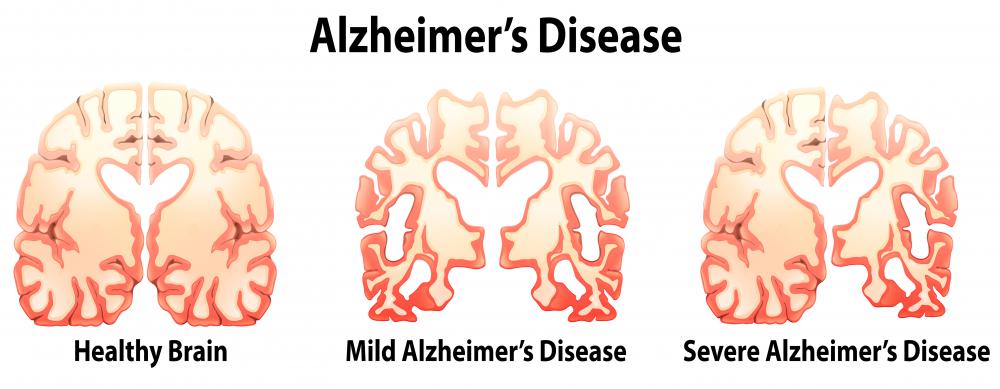At TheHealthBoard, we're committed to delivering accurate, trustworthy information. Our expert-authored content is rigorously fact-checked and sourced from credible authorities. Discover how we uphold the highest standards in providing you with reliable knowledge.
What Is the Relationship between the Amygdala and Hippocampus?
The amygdala and hippocampus are two parts of the limbic system of the brain. Both of these parts have primary functions that relate to memories and reactions to emotional aspects. These two parts, as part of the limbic system as a whole, deal with how the human brain processes these emotions and memories.
Humans have complex brains that are divided into sections and sub-sections. Each of these divisions has a specific set of functions and purposes of their own. Together, the brain is responsible for controlling each and every aspect of the body, from movement to hormone production. The limbic system plays a large role in behavior and emotion control.

Within the limbic system, the amygdala and hippocampus are located under the hypothalamus, which is another part of the limbic system, near the left section of the thalamus. Combined, the two parts deal primarily with forming long-term memory, processing emotions, and determining how those emotions are tied to memories. Although these two parts work together, they each have their own responsibilities.

The amygdala has several functions. It controls the brain's ability to coordinate many responses to emotional stimuli. These include endocrine, autonomic, and behavioral responses. Stress, anxiety, and fear are primary stimuli that produce responses. Mediation by the amygdala helps control how these stimuli come together and provide coordination.
In contrast to the functions of the amygdala, the hippocampus controls the body's production of corticosteroids, which are chemicals that create physiological responses to stimuli. The hippocampus also regulates how the mind creates memories. Short-term memories are combined with the emotional responses to create long-term memories. Additionally, studies also suggest that the hippocampus acts as a map by creating a layout of an environment a person experiences, referred to as a cognitive neural map.

The amygdala and hippocampus rely on each other to form their individual functions. Responses to stimuli are regulated by the amygdala and those responses are then used by the hippocampus in the formation of both short-term and long-term memories. Certain events are associated with the stimuli that are experienced during those events, which are processed by the amygdala and accessed by the hippocampus.

Damage to the amygdala and hippocampus can produce different results. If the amygdala is damaged and cannot function properly, a person can seem void of emotion because there is no response to stimuli. Hippocampus injury can vary in the results depending on which side is damaged, and the extent of the damage. Generally, memory function is altered. Patients who have Alzheimer's disease often have damage in the hippocampus.
AS FEATURED ON:
AS FEATURED ON:

















Discussion Comments
The article saved me the night before my psychology assessment (in my senior year of high school) - the textbook and teachers notes did not make sense and this did. Thank you!
Post your comments